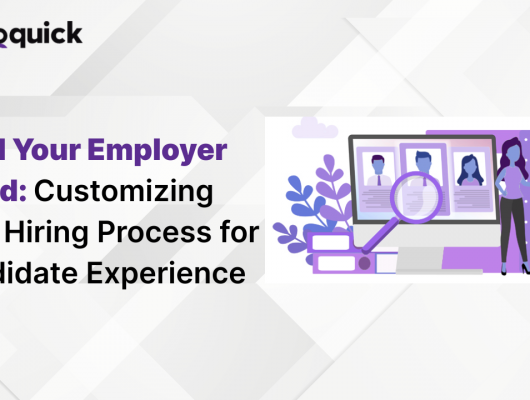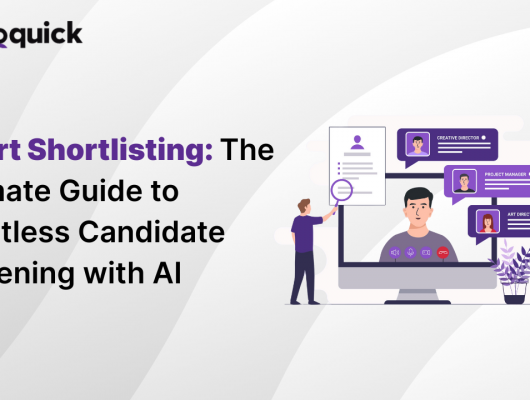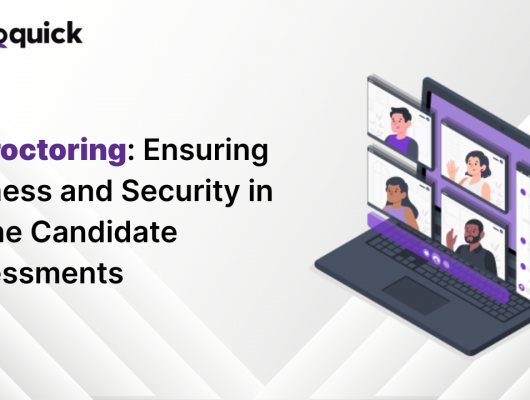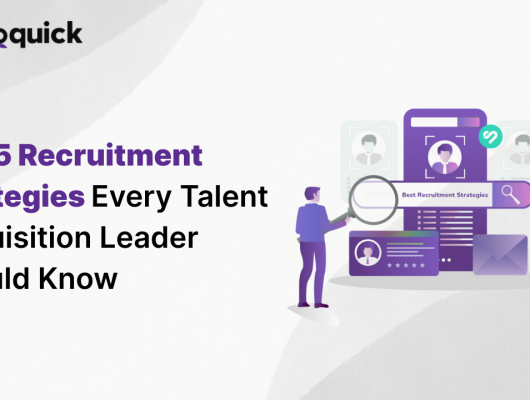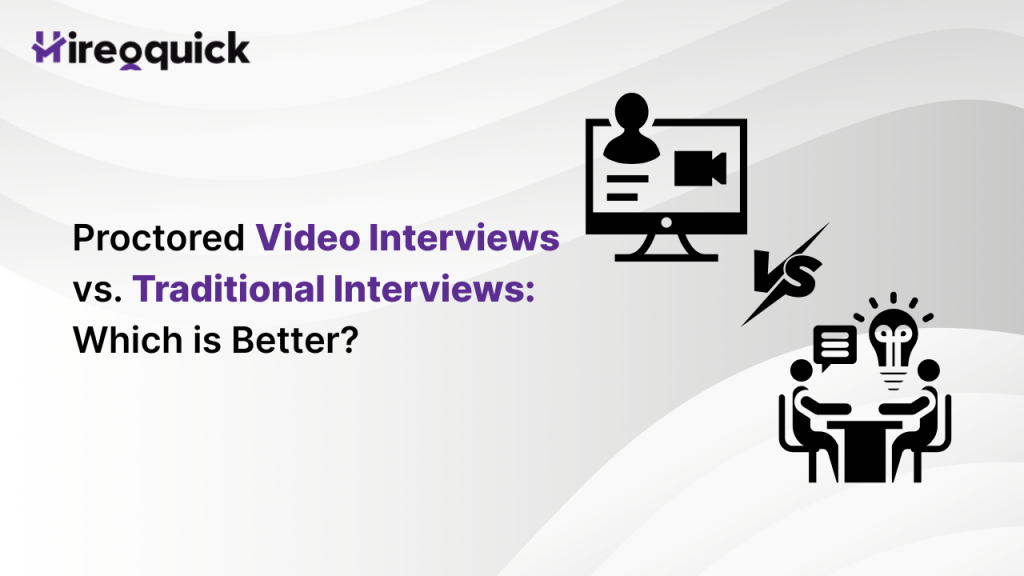
The recruitment process has evolved significantly over the years, driven by technological advancements and a changing global workforce. Traditional face-to-face interviews have long been the gold standard for hiring, but with the rise of remote work and digital communication, companies are increasingly turning to proctored video interviews as an alternative.
According to a recent survey by SHRM (Society for Human Resource Management), nearly 60% of companies in the U.S. have adopted some form of virtual interviewing. With the flexibility, cost-effectiveness, and efficiency that video interviews offer, it’s no wonder businesses are shifting towards this model. But when it comes to choosing between proctored video interviews and traditional ones, many companies still struggle with the decision. What’s the right choice? Which format offers the best results?
In this blog, we’ll dive deep into the key differences between proctored video interviews and traditional interviews, comparing their benefits, challenges, and impact on hiring decisions.
What are Proctored Video Interviews?
Before comparing the two methods, it’s important to understand what proctored video interviews are. A proctored video interview is a type of virtual interview where the candidate is monitored during the process. The interviewer or an automated system ensures that the candidate is following the rules and not engaging in dishonest practices like cheating or getting assistance from external sources. AI powers proctored interviews, which can include features such as facial recognition, audio monitoring, and behavior analysis.
This approach allows recruiters to conduct interviews remotely while maintaining a high level of security and integrity during the process. Proctored video interviews are often used for roles that require specific skills or certifications, such as technical positions or jobs with sensitive information. For a deeper dive into the pros and cons of virtual interviews, check out this SHRM article on virtual interviewing.
The Traditional Interview Process
Traditional interviews are face-to-face meetings between the candidate and the interviewer, typically conducted in the company’s office. These interviews may also be conducted in hybrid formats, where candidates are interviewed in person or through basic video conferencing tools without proctoring.
Traditional interviews have been a staple in recruitment processes for decades. They are widely recognized as the best way to assess a candidate’s communication skills, personality, and fit within the company culture. However, as businesses have become more global, remote interviews have started to replace in-person meetings due to convenience, cost savings, and time efficiency. Let’s now compare both interview formats to see how they stack up in key areas.
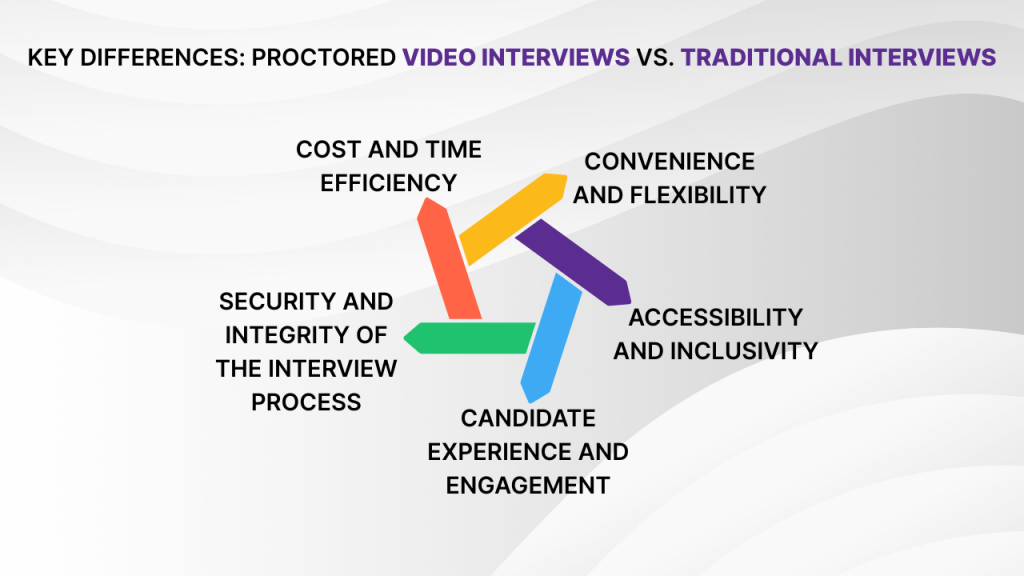
Key Differences: Proctored Video Interviews vs. Traditional Interviews
Convenience and Flexibility
Proctored Video Interviews: Proctored video interviews offer unparalleled convenience and flexibility. Candidates can complete the interview from anywhere, whether they are at home, in a coffee shop, or on the go. This removes geographical constraints, allowing companies to tap into a global talent pool. Candidates can also schedule proctored interviews at their convenience, making it easier to fit the interview into their schedule.
Traditional Interviews: Traditional interviews require candidates to be present in person or available at specific times for video calls, which can be challenging for those with distance, tight schedules, or time zone differences. This format often leads to a more rigid scheduling process, which can be inconvenient for both parties.
Cost and Time Efficiency
Proctored Video Interviews: One of the key benefits of proctored video interviews is the reduction in both time and costs associated with recruitment. Traditional interviews often require travel, venue costs, and significant time commitments. For large-scale recruitment, this can add up quickly. Proctored video interviews eliminate the need for travel or renting interview rooms, leading to considerable savings.
Traditional Interviews: Traditional face-to-face interviews require the candidate to travel to the interview location, leading to added costs in terms of travel, accommodation, and time spent commuting. For the interviewer, it also requires more time spent on coordinating logistics and in-person meetings, which can be inefficient when managing multiple candidates.
Security and Integrity of the Interview Process
Proctored Video Interviews: Proctored video interviews provide an added layer of security. AI-powered monitoring in proctored video interviews tracks candidates’ movements, detects cheating, and prevents unauthorized assistance, ensuring integrity. This is especially valuable for industries requiring high standards, like technical or regulated fields.
Traditional Interviews: While traditional interviews may feel more secure due to the in-person nature of the meeting, there is little to prevent candidates from receiving assistance during the interview process, especially if the interview is virtual. This can create a risk of dishonesty, especially when conducting remote interviews without monitoring tools in place.
Candidate Experience and Engagement
Proctored Video Interviews: From a candidate’s perspective, proctored video interviews can be less stressful than traditional in-person interviews. There’s no need to worry about commuting or navigating unfamiliar office environments. However, the presence of AI-powered monitoring might make some candidates feel uncomfortable or pressured. To mitigate this, it’s important for employers to be transparent about the process and reassure candidates that the monitoring is simply to ensure fairness.
Traditional Interviews: Traditional interviews offer a more personal touch, allowing candidates to interact directly with hiring managers and recruiters. This face-to-face interaction can help create a rapport and allow recruiters to better gauge a candidate’s personality and cultural fit. For many candidates, the traditional interview process feels more human and less robotic compared to the digital nature of proctored interviews.
Accessibility and Inclusivity
Proctored Video Interviews: Proctored video interviews are often more inclusive, as they can be conducted remotely and are available to candidates from various geographical locations. This makes it easier for candidates with disabilities or those from different backgrounds to participate in the recruitment process. However, it’s crucial for companies to ensure that their technology is accessible to all candidates, including those with hearing or visual impairments.
Traditional Interviews: In contrast, traditional interviews may be less inclusive, particularly if they are held in a physical office or rely on candidates’ ability to travel. For candidates with physical disabilities or those in remote locations, traveling to an interview can be a significant barrier. Additionally, traditional interviews may not always be equipped to accommodate the needs of all candidates, especially in terms of accessibility features.
Why HireOquick is a Game-Changer for Proctored Video Interviews
When it comes to implementing proctored video interviews effectively, HireOquick stands out as an innovative recruitment platform. Designed to streamline the entire hiring process, HireOquick offers AI-powered proctored video interview features that ensure fairness, integrity, and an enhanced candidate experience.
AI-Powered Proctoring and Security
HireOquick uses AI-powered proctoring to monitor candidates during video interviews, ensuring fairness and preventing cheating. It employs facial recognition and behavior analysis to detect any rule violations, giving employers confidence in the results.
Seamless Integration with Video Interviews
HireOquick’s platform also allows seamless integration of video interviews directly into the recruitment process. This means that hiring managers can conduct live interviews, assess candidates in real-time, and receive instant feedback all in one place. The platform also supports features like interview scheduling, candidate progress tracking, and feedback collection, streamlining the entire process.
Improved Candidate Experience
HireOquick makes the interview process as smooth as possible for candidates. The platform allows candidates to take their proctored video interviews from any location, eliminating the stress and hassle of traveling. Additionally, the system provides candidates with real-time feedback, helping them understand their performance and what to expect next in the recruitment Software.
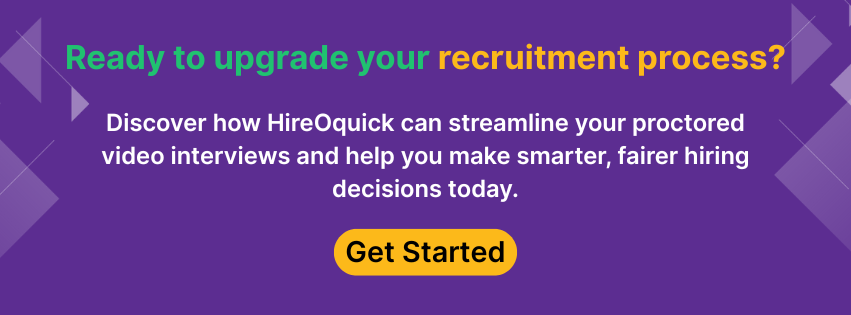
Conclusion: Which Interview Format is Right for You?
Choosing between proctored video interviews and traditional interviews depends on your recruitment needs. Proctored video interviews offer flexibility, security, and cost savings, making them ideal for large-scale hiring or roles requiring high integrity. Traditional interviews provide a personal touch and better insights into a candidate’s personality and cultural fit.
For businesses looking to modernize their recruitment processes while ensuring fairness and efficiency, proctored video interviews powered by platforms like HireOquick are the way forward. By combining the benefits of AI-powered monitoring with a seamless video interview experience, HireOquick provides a comprehensive solution that meets the demands of today’s competitive job market.

